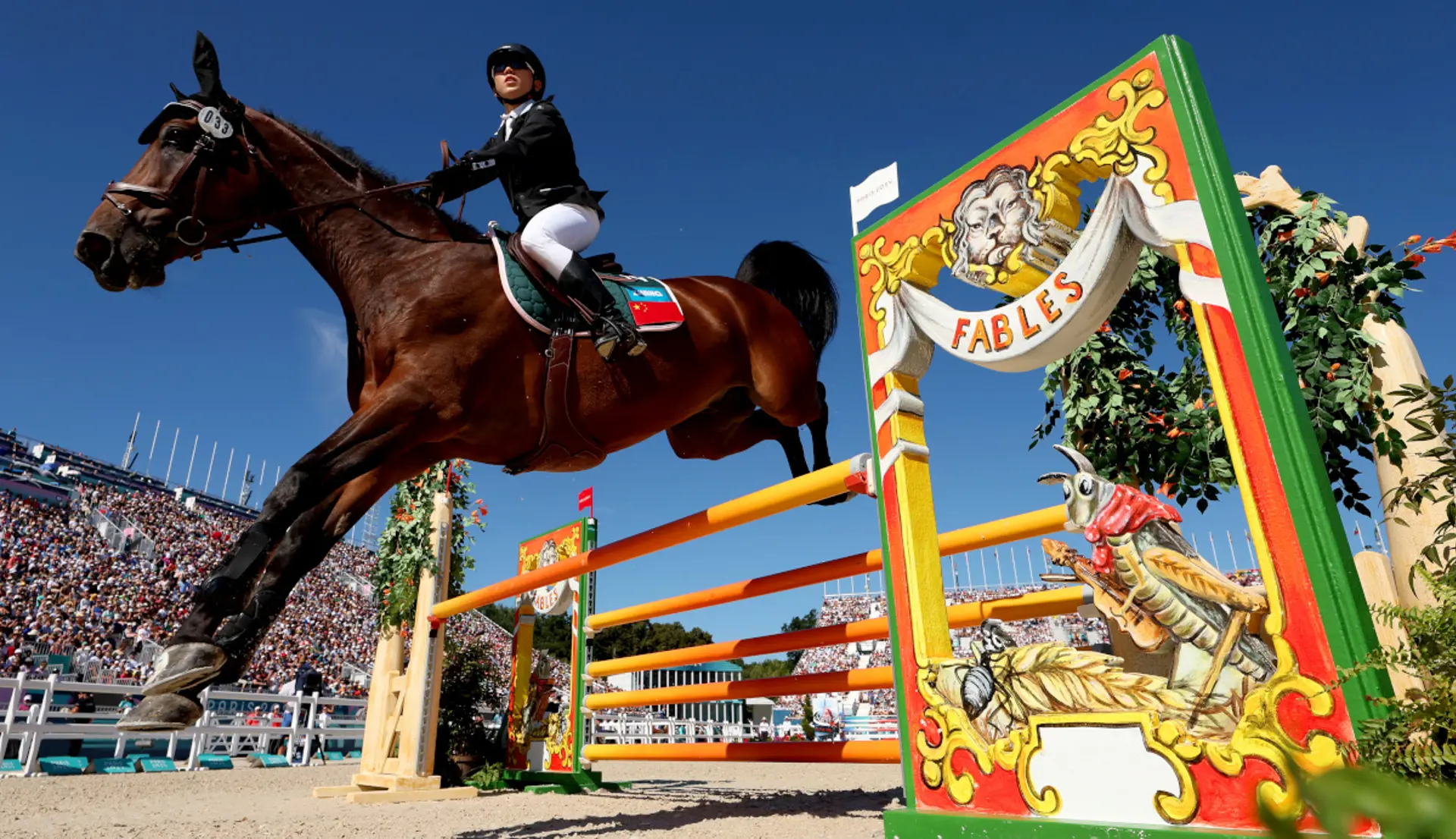The horses ride into history

Modern Pentathletes chase gold on horseback, on foot, in water, brandishing electric epees and firing laser pistols, but Sunday marked the end of an era for one of the more obscure and disparate offerings on the Olympic programme.
The women's final featured show jumping for the last time before horses are replaced by obstacle courses for the 2028 Los Angeles Games.
Advertisement
The new ingredient in a quirky mix has drawn a varied response, some lapping it up and others finding it not at all to their taste.
Horses have been a part of the oft-reinvented five-discipline event since modern Olympics founder Pierre de Coubertin introduced it in 1912, but they are now following cavalry charges and cuirassiers into history.
The decision was made after the 2021 Tokyo Games when a German coach caused an outcry by striking a horse that refused to jump.
The rider in that incident, Annika Schleu, was back on Sunday and enjoyed a clear round as a late replacement under her married name of Zillekens.
While "Ninja Warrior"-style obstacle courses may broaden the appeal of a sport used to fighting for its place at the Games, pentathletes must decide whether to stay or go.
"It's sad. I come from a horse background," said American Jessica Savner, who had already decided to retire.
"I just hope it means there's a beginning of a bunch of other people's careers. I hope they take whatever they can out of it."
Britain's Charlie Brown, who grew up on a farm, said after Friday's men's semi-final that the feeling was less one of sadness and more of having been part of something special.
"This definitely won't be the last time I'll be riding horses," he said, while looking forward to the challenge of obstacles.
Teammate and 2021 Olympic champion Joe Choong has been a fierce critic of the decision but said he would try obstacles before any retirement decision.
"There’s no other sport where you have to bond with another animal and try and work out an agreement of how to coexist and work together in such a short space of time," he said of the horses.
The mounts are randomly assigned, with athletes given 20 minutes to bond -- a luck of the draw that introduces a major element of jeopardy to the competition.
Two unfortunate competitors in Sunday's final were eliminated when their horses refused fences, with French medal contender Marie Oteiza thrown off and onto the bars. She walked away, hands to her face.
"Getting a horse on luck, your luckiness, is not sport really," Britain's seven-time Olympic dressage rider Carl Hester, whose horses take years of training, told Reuters before the Games.
Ukrainian pentathlete Vladyslav Chekan said he was in favour of the change because the luck of the horse draw could wreck someone's chances.
"It's so painful when you train all your life...when the horse is destroying all your preparation, it was not so good. Obstacle is much better because it's all in your hands."
Advertisement


